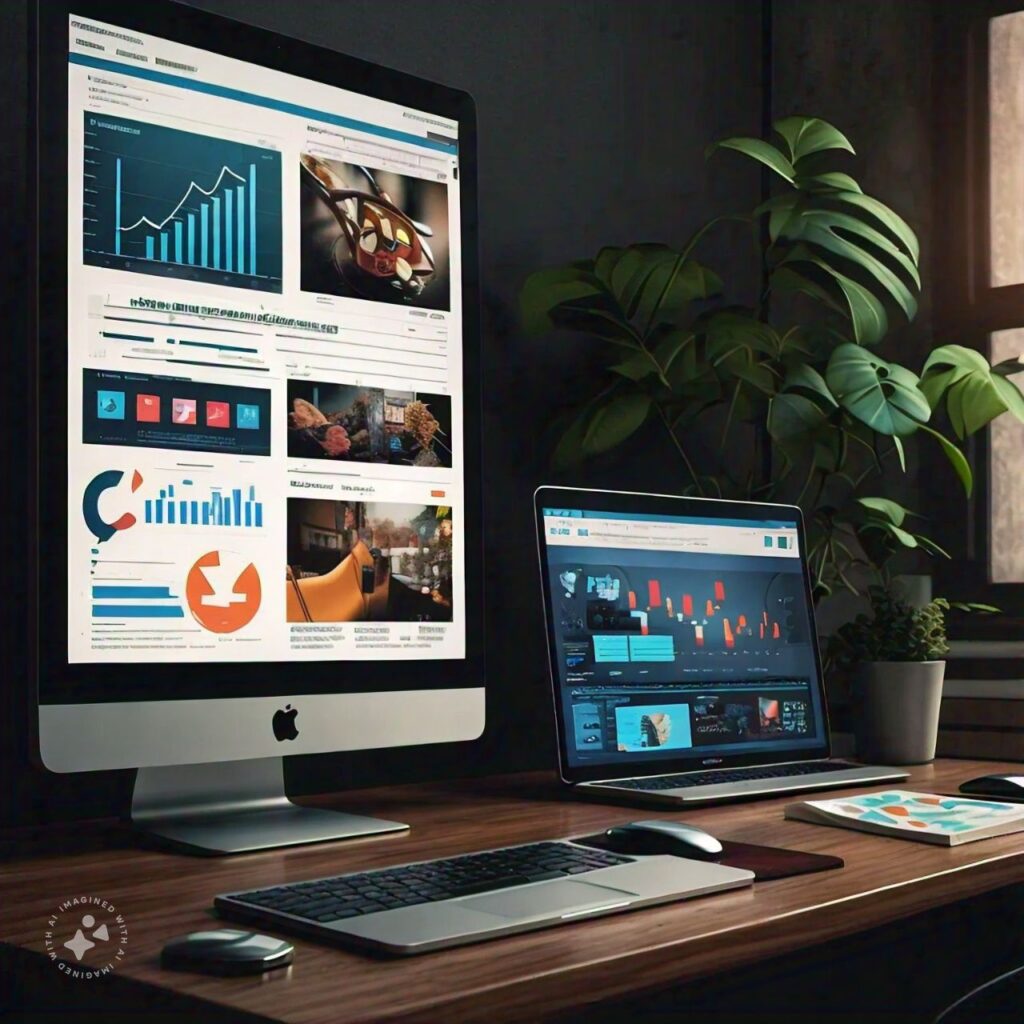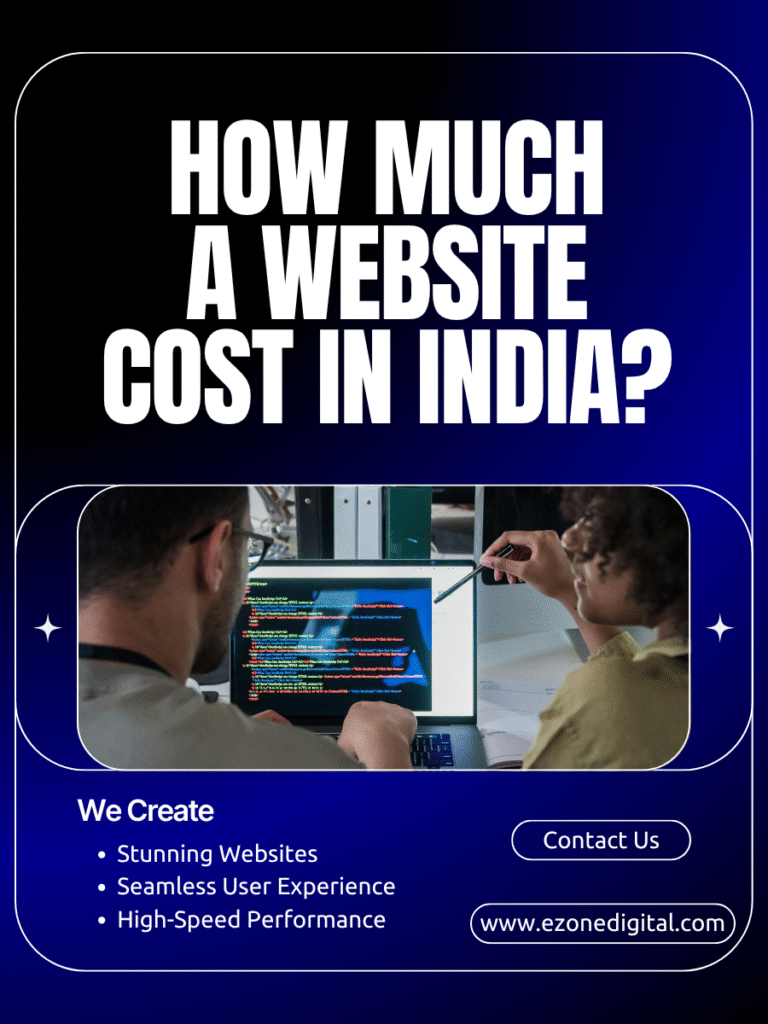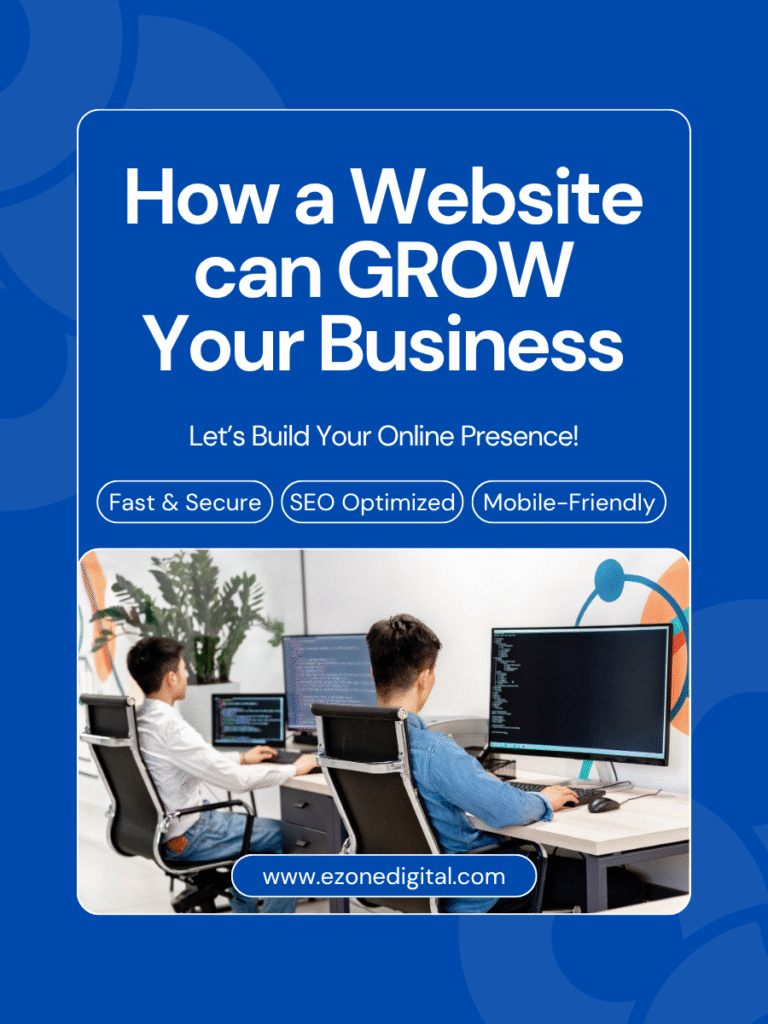ezonedigitalco@gmail.com | (+91) 9547968646
Why Digital Marketing is Crucial for Your Business Success
In today’s highly competitive business landscape, digital marketing has emerged as one of the most vital tools for growth and sustainability. With more than 5 billion people actively using the internet, businesses are increasingly moving online to engage and convert their target audience. Whether you’re a startup, small business, or a large corporation, digital marketing provides cost-effective, impactful, and trackable ways to reach your business goals.
Here’s why digital marketing is indispensable for modern businesses:
1. Broader Reach at Lower Costs
One of the primary advantages of digital marketing is the ability to reach a vast and varied audience without incurring the high costs associated with traditional marketing. Social media platforms, email marketing, and search engines enable businesses to reach potential customers both locally and globally. Traditional advertising methods like TV, radio, and print ads often require a substantial budget, but digital channels offer more affordable options with a greater capacity to reach niche audiences.
Small businesses and startups, in particular, benefit from the cost-efficiency of digital marketing, allowing them to compete with larger corporations for visibility and influence without a massive advertising budget.

2. Enhanced Targeting and Personalization
Digital marketing platforms provide powerful targeting options. Businesses can narrow down their audience based on factors like location, age, interests, online behavior, and more. This level of targeting ensures that marketing efforts are spent on people who are most likely to convert. For instance, Facebook and Google Ads offer detailed targeting settings that allow you to show your ads only to the most relevant audience, increasing the likelihood of conversion and decreasing wasted spend.
Furthermore, with personalization tools like automated email marketing, businesses can create personalized messages based on a customer’s behavior, preferences, or buying history. Personalization improves engagement and conversion rates, making marketing efforts more impactful.

3. Measurable Results and Data-Driven Insights
One of the biggest challenges with traditional advertising is measuring effectiveness. With digital marketing, businesses can track their performance in real-time. Analytics tools, like Google Analytics, provide valuable insights into consumer behavior, campaign performance, and traffic sources, allowing businesses to make informed decisions.
Through data-driven insights, businesses can identify what’s working and what’s not, enabling them to make real-time adjustments to campaigns. This agile approach leads to improved ROI as businesses optimize their strategies based on concrete metrics rather than assumptions.

4. Better Engagement and Relationship Building
Digital marketing allows businesses to engage with customers in ways that traditional marketing cannot. Social media platforms, in particular, create a two-way communication channel where businesses can directly interact with their audience, answer questions, address concerns, and build loyalty. Customers today expect personalized experiences and are more likely to engage with brands that respond to them in a meaningful way.
Platforms like Facebook, Instagram, and Twitter make it easy for businesses to gather feedback, run surveys, and involve customers in their brand story. Additionally, content marketing through blogs, videos, and articles allows businesses to educate, entertain, and connect with their audience, building trust and authority in their industry.
5. High Conversion Rates and Lead Generation
With effective targeting and personalized strategies, digital marketing can yield higher conversion rates than traditional methods. Techniques like email marketing, retargeting, and targeted ads allow businesses to reach interested customers multiple times, reminding them of their products or services.
For example, a user who added items to their cart but didn’t complete the purchase can be targeted through an automated email reminder or a retargeting ad on social media. This ongoing engagement increases the chances of converting prospects into customers, ultimately boosting sales.
6. Competitiveness in a Digital-First Economy
In an increasingly digital world, businesses that don’t invest in digital marketing risk being overshadowed by competitors who do. Consumers turn to search engines, social media, and online reviews before making purchasing decisions, and if your brand lacks visibility in these channels, it may lose credibility or miss out on potential customers.
By leveraging SEO, social media, and content marketing, businesses can stay competitive and gain visibility, ensuring that they are not only found but trusted by potential customers. Staying relevant and visible in the digital space is essential for any business looking to stay competitive and thrive.
7. Improved Brand Awareness and Credibility
Digital marketing offers numerous ways to build brand awareness and establish credibility. Content marketing, such as publishing blog posts, creating video tutorials, and sharing valuable insights on social media, allows businesses to showcase their expertise. When businesses consistently deliver valuable information, customers are more likely to see them as reliable, trustworthy, and knowledgeable.
Additionally, businesses can gain customer trust through online reviews and testimonials. Engaging with reviews and responding to customer feedback transparently can strengthen a business’s reputation, which is especially important given the influence of online opinions on purchasing behavior.
Conclusion
Digital marketing is no longer a luxury; it’s a necessity for businesses of all sizes. With its ability to reach targeted audiences, provide measurable results, and drive meaningful engagement, digital marketing is instrumental in creating sustainable growth and profitability. Embracing digital marketing is essential for any business seeking to increase its reach, convert more leads, and stay competitive in the digital age.



